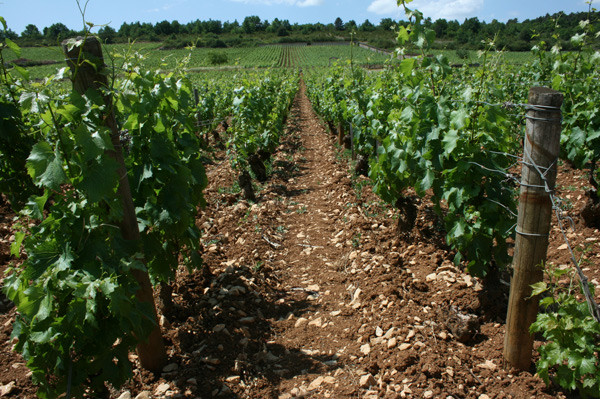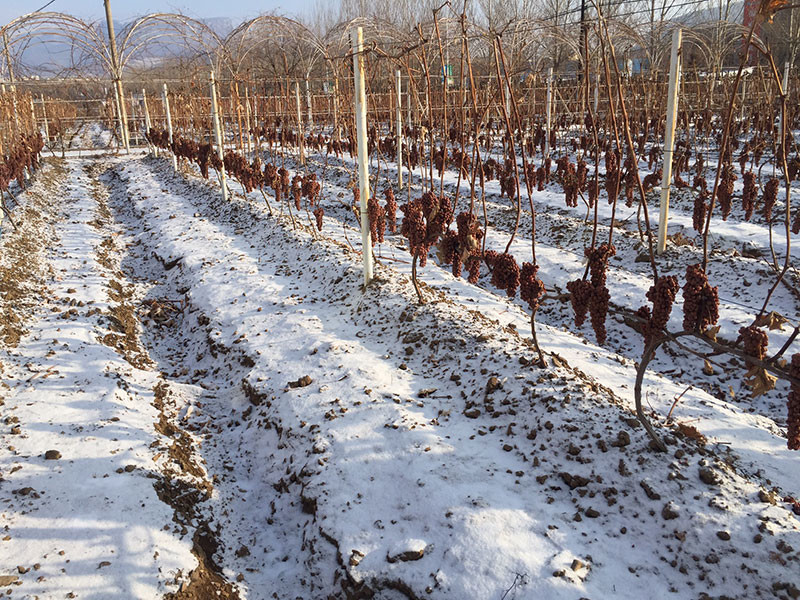Arguably the most well-known ice wine comes from Canada (where it is written as icewine). But actually ice wine originated in Germany, where it’s called ‘Eiswein’.

Germany
Eiswein, made primarily from Riesling, is categorised as Pradikätswein in Germany. However, due to its distinctive winemaking method, it’s treated as a separate classification and is not ranked in the quality pyramid of Pradikätswein (e.g. Kabinett, Spätlese, etc).
From November until as late as February, winemakers need to wait for a deep frost, and when the temperature dips to -8 °C, they pick the frozen grapes from the vine.

The frozen grapes are immediately crushed, and the ice is skimmed away. As only water in the grape freeze but not the dissolved contents, the juice is left with high concentration of sugar and acidity.
The must weight of Eiswein needs to reach that of a Beerenauslese (BA). If the must fails to reach the standard, it will possibly be made into an Auslese wine.
In order to make an Eiswein, there are several requirements to be met: firstly a winter that is cold enough (below -8 °C), then enough frozen grapes, plus sufficient must weight. These limitations mean making Eiswein is risky, and explain why it is usually sold at a high price.
Austria
Eiswein is also produced in Austria, where sweet wine is a specialty. Similar to Germany, Austrian Eisweins need to reach the must weight of a Beerenauslese, and grapes need to be picked under -7 °C.
Canada
In Canada icewines are made mainly in Ontario, and also British Columbia and Quebec. The specialty grape variety to make icewine is the French hybrid Vidal, in addition to Riesling.
Grapes also need to be picked under -8 °C, but the must weight is normally higher than the requirement for Germany and Austria.
All rights reserved by Future plc. No part of this publication may be reproduced, distributed or transmitted in any form or by any means without the prior written permission of Decanter.
Only Official Media Partners (see About us) of DecanterChina.com may republish part of the content from the site without prior permission under strict Terms & Conditions. Contact china@decanter.com to learn about how to become an Official Media Partner of DecanterChina.com.











Comments
Submit